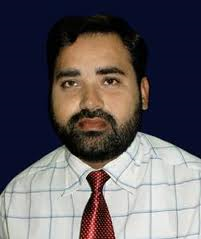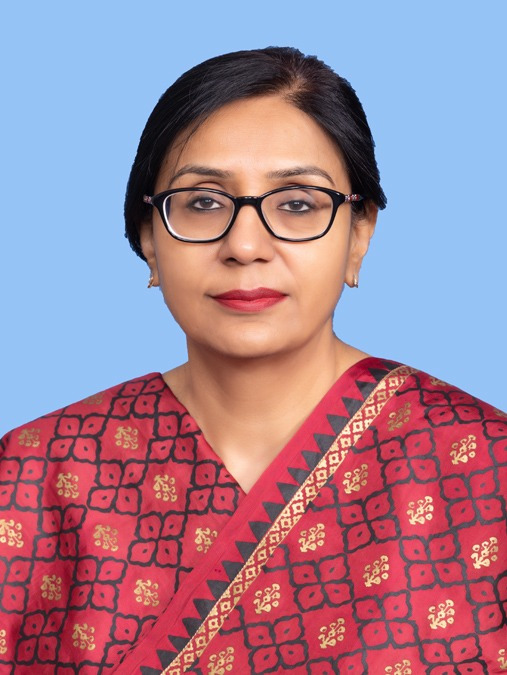Doctor of Pharmacy (Pharm-D)
University of Health Sciences, Lahore is offering Doctor of Pharmacy (Pharm-D)
program to the undergraduate students during the Fall and Spring Semesters.
Pharm-D is a professional degree in pharmacy.
The Pharm-D graduates are high-quality professional pharmacy practitioners possessing the
pharmacotherapeutic knowledge, professional abilities and expertise, and social cognizance
to provide the highest standards in pharmacy care, patient-specific drug therapy, drug information,
pharmacovigilance and the knowledge to educate other healthcare providers and public at large
about the manner in which drug therapy optimizes health care outcomes as required by the
Drug Act, 1976 of Pakistan.
Seats:
A total of 100 seats has been officially allocated by the Pharmacy Council of Pakistan (PCP) for each academic session.
Duration:
Pharm-D is a five years degree program, comprising of ten semesters, each semester spans for sixteen weeks. Each semester ends with the conduct of final-term examination. During this time period, students receive rigorous training in theoretical and practical knowledge of all aspects of Pharmacy.
Course Outline:
The major subjects included in Pharm-D program are as follow:
a) Pharmaceutics: including Physical pharmacy, Dosage forms sciences, Pharmaceutical microbiology and immunology, Industrial pharmacy and Bio-pharmaceutics;
b) Pharmaceutical Chemistry: including Organic chemistry, Biochemistry, Pharmaceutical analysis and Medicinal chemistry;
c) Pharmacognosy: Basic pharmacognosy, Advanced pharmacognosy
d) Pharmacology: including clinical pharmacology, physiology, pathology and histology and anatomy; and
e) Practice of Pharmacy: including Pharmaceutical mathematics and biostatistics, Dispensing, community, Social and administrative pharmacy, Hospital pharmacy, Clinical pharmacy, pharmaceutical quality management, forensic pharmacy, pharmaceutical technology, pharmaceutical management and marketing.
Course Outline:
The curriculum of Doctor of Pharmacy (Pharm-D) notified by Higher Education Commission (HEC), Islamabad, Pakistan, (Revised 2011) and duly approved by the Board of Studies (Pharmacy), University if Health Sciences Lahore.
Scheme of Courses for Pharm.D.(Five Year)
1st Professional Pharm-D
1st Semester |
2nd Semester |
Course No. |
Subject |
Cr. Hr |
Course No. |
Subject |
Cr. Hr. |
ENG 300 |
English -A (Functional English) |
2 |
ENG 301 |
English-B(Communication & writing skills) |
4 |
PHARM 310 |
Pharmaceutics-IA (Physical Pharmacy) |
3+1 |
PHARM 315 |
Pharmaceutics-IB
(Physical Pharmacy) |
3+1 |
PHARM 311 |
Pharmaceutical Chemistry-IA (Organic Chemistry) |
3+1 |
PHARM 316 |
Pharmaceutical Chemistry-IB (Organic Chemistry) |
3+1 |
PHARM 312 |
Pharmaceutical chemistry-IIA (Biochemistry) |
3+1 |
PHARM 317 |
Pharmaceutical chemistry-IIB (Biochemistry) |
3+1 |
PHARM 313 |
Physiology-A |
3+1 |
PHARM 318 |
Physiology-B |
3+1 |
PHARM 314 |
Anatomy & Histology |
3+1 |
|
|
|
2nd Professional Pharm-D
1st Semester |
2nd Semester |
Course No. |
Subject |
Cr. Hr |
Course No. |
Subject |
Cr. Hr. |
IS 402 |
Islamic Studies |
3 |
IS 403 |
Islamic Studies |
3 |
PHARM 410 |
Pharmaceutics-IIA (Dosage from Sciences) |
3+1 |
PHARM 415 |
Pharmaceutics-IIB (Dosage from Sciences) |
3+1 |
PHARM 411 |
Pharmaceutics-IIA (Pharmaceutical Microbiology and Immunology) |
3+1 |
PHARM 416 |
Pharmaceutics-IIB (Pharmaceutical Microbiology and Immunology) |
3+1 |
PHARM 412 |
Pharmacology and Therapeutics-IA |
3+1 |
PHARM 417 |
Pharmacology and Therapeutics-IB |
3+1 |
PHARM 413 |
Pharmacognosy-IA (basic) |
3+1 |
PHARM 418 |
Pharmacognosy-IB (basic) |
3+1 |
PHARM 414 |
Pharmacy Practice (Pharmaceutical Mathematics) |
3+1 |
PHARM 419 |
Pharmacy practice-IB (Bio-Statistics) |
3+1 |
3rd Professional Pharm-D
1st Semester |
2nd Semester |
Course No. |
Subject |
Cr. Hr. |
Course No. |
Subject |
Cr. Hr. |
PHARM 510 |
Pharmacy Practice-IIA (Dispensing Pharmacy) |
3+1 |
PHARM 515 |
Pharmacy Practice-IIB (Community, social & Administrative Pharmacy) |
3+1 |
PHARM 511 |
Pharmaceutical Chemistry-IIIA (Pharmaceutical Analysis) |
3+1 |
PHARM 516 |
Pharmaceutical Chemistry-IIIB (Pharmaceutical Analysis) |
3+1 |
PHARM 512 |
Pharmacology and Therapeutics-IIA |
3+1 |
PHARM 517 |
Pharmacology and Therapeutics-IIB |
3+1 |
PHARM 513 |
Pharmacognosy-IIA |
3+1 |
PHARM 518 |
Pharmacognosy-IIB (Advanced) |
3+1 |
PHARM 514 |
Pathology |
3+1 |
PHARM 519 |
Pharmacy practice-III (Computer and its Application in pharmacy) |
3+1 |
4th Professional Pharm-D
1st Semester |
2nd Semester |
Course No. |
Subject |
Cr. Hr. |
Course No. |
Subject |
Cr. Hr. |
PHARM 610 |
Pharmacy Practice-IVA (Hospital Pharmacy) |
3 |
PHARM 615 |
Pharmacy Practice-IVB (Hospital Pharmacy) |
3 |
PHARM 611 |
Pharmacy Practice-VA (Clinical Pharmacy) |
3+1 |
PHARM 616 |
Pharmacy Practice-VB (Clinical Pharmacy) |
3+1 |
PHARM 612 |
Pharmaceutics-IVA (Industrial Pharmacy) |
3+1 |
PHARM 617 |
Pharmaceutics-IVB (Industrial Pharmacy) |
3+1 |
PHARM 613 |
Pharmaceutics-VA (Biopharmaceutics & Pharmacokinetics) |
3+1 |
PHARM 618 |
Pharmaceutics-VB (Biopharmaceutics & Pharmacokinetics) |
3+1 |
PHARM 614 |
Pharmaceutics-VIA (Pharmaceutical Quality Management) |
3+1 |
PHARM 619 |
Pharmaceutics-VIB (Pharmaceutical Quality Management) |
3+1 |
5th Professional Pharm-D
1st Semester |
2nd Semester |
Course No. |
Subject |
Cr. Hr. |
Course No. |
Subject |
Cr. Hr. |
PHARM 710 |
Pharmaceutics-VIIA (Pharmaceutical Technology) |
3+1 |
PHARM 715 |
Pharmaceutics-VIIA (Pharmaceutical Technology) |
3+1 |
PHARM 711 |
Pharmacy Practice-VIA (Advanced Clinical Pharmacy-II) |
3+1 |
PHARM 716 |
Pharmacy Practice-VIA (Advanced Clinical Pharmacy-II ) |
3+1 |
PHARM 712 |
Pharmacy Practice-VIIA (Forensic Pharmacy) |
3 |
PHARM 717 |
Pharmacy Practice-VIIA (Forensic Pharmacy) |
3 |
PHARM 713 |
Pharmacy Practice-VIIA (Pharmaceutical Management & Marketing) |
3 |
PHARM 718 |
Pharmacy Practice-VIIA (Pharmaceutical Management & Marketing) |
3 |
PHARM 714 |
Pharmaceutical chemistry-IVA (Medicinal Chemistry) |
3+1 |
PHARM 719 |
Pharmaceutical chemistry-IVA (Medicinal Chemistry) |
3+1 |
Teaching System:
Semester System:
Total = 10 semesters (Five-Years Course)
Fee Structure:
Sr. No |
Particular |
1st
Semester |
2nd |
3rd |
4th |
5th |
6th |
7th |
8th |
9th |
10th |
1 |
Admission Fee (Non-Refundable) |
30,000 |
- |
- |
- |
- |
- |
- |
- |
- |
- |
2 |
Tuition Fee |
150,000 |
150,000 |
150,000 |
150,000 |
150,000 |
150,000 |
150,000 |
150,000 |
150,000 |
150,000 |
3 |
Registration Fee |
15,000 |
- |
- |
- |
- |
- |
- |
- |
- |
- |
4 |
Security (Refundable) |
20,000 |
- |
- |
- |
- |
- |
- |
- |
- |
- |
| |
Mid-term Exam fee |
1,000 |
1,000 |
1,000 |
1,000 |
1,000 |
1,000 |
1,000 |
1,000 |
1,000 |
1,000 |
5 |
Final term Exam fee |
9,000 |
9,000 |
9,000 |
9,000 |
9,000 |
9,000 |
9,000 |
9,000 |
9,000 |
9,000 |
6 |
TOTAL |
225,000 |
160,000 |
160,000 |
160,000 |
160,000 |
160,000 |
160,000 |
160,000 |
160,000 |
160,000 |
*The fee structure may change depending on the university's policies.
Academic Operations Location
College of Pharmacy, Academic Block, Jinnah Campus, Kala Shah Kaku. (Campus photo, if agreed)
Career Opportunities
Graduates after completion of their Pharm.D. (Doctor of Pharmacy) degree are equipped to work in diverse settings as
- Clinical Pharmacist: Working in specialized areas such as oncology, critical care unit/HDUs, burn unit, and pediatrics etc. Pharmacists are well equipped in preparation and aseptic unit dose dispensing, total parental nutrition (TPN), targeted mono-therapy and extemporaneous preparations according to the individual needs of the patients.
- Community Pharmacist: Providing medications, patients’ counseling, and managing the issues related to health and wellness of community at a large.
- Hospital Pharmacist: Pharmacists’ work as a basic pillar in public/private hospital setups and collaborate with healthcare providers to manage safe and rational usage of medications to get the desired out comes of treatment.
- Industrial Pharmacist: Industrial pharmacists play a vital role in the formulation and development of new drugs. They collaborate with researchers, chemists, and other professionals to optimize the drug's chemical composition, dosage forms, and delivery systems.
- Production Manager in Pharmaceutical Industry: Pharmacists, with their specialized knowledge of drug formulation, manufacturing processes, and regulatory compliance, are well-equipped to take on leadership roles in pharmaceutical production. As Production Managers, they play a critical role in ensuring that manufacturing operations are conducted efficiently, safely, and in compliance with Good Manufacturing Practices (GMP) and other regulatory standards. He also keeps batch manufacturing records and ensure that production environments meet required standards for cleanliness, contamination control, and equipment validation.
- Q/A Manager: Pharmacists possess a strong foundation in pharmaceutical sciences, regulatory compliance, and quality systems, making them highly suited for leadership roles in Quality Assurance (QA) within the pharmaceutical industry. As QA Managers, pharmacists ensure that all processes involved in the production, testing, storage, and distribution of pharmaceutical products comply with Good Manufacturing Practices (GMP), regulatory guidelines, and internal quality standards.
- Q/C Manager: As a Q/C Manager, a pharmacist ensures the scientific and regulatory robustness of pharmaceutical quality testing. Their deep understanding of drug chemistry, dosage forms, and analytical methodology positions them to safeguard public health by ensuring that every product released meets the highest standards of quality and safety.
- Pharmacist in Drug Regulatory Affairs: In Drug Regulatory Affairs, pharmacists are concerned with the regulations and guidelines for clinical trials and other aspects of human research. In Pakistan, there is a legal requirement for some type of government approval for a product to reach the market. There are regulations laid down by the Ministry of Health, Pakistan/DRAP that are being practiced in conducting a clinical trial. Pharmacist has a potential and pivotal role as a “drug regulator” and he is serving as Deputy drug controller, Drug controller and members of PQCB (Provincial quality control board) and DQCB (District quality control board).
- Pharmacist in Academia: Pharmacists are faculty members of an educational institute (e.g. University, Faculties, Departments, etc.). They are involved in teaching and training of the future generations of pharmacists and pharmaceutical scientists. Academic pharmacists in a university are also contributing in the field of new drug designing and pharmaceutical drug development.
- Pharmacist in Drug Sales & Marketing: Pharmaceutical marketing aims to educate Health Care Professionals (HCPs) about the benefits and risks of various drugs. Their usage, administration, and to improve their prescribing behavior. Pharma companies can improve the chances of prescribing and selling their pharmaceutical products by engaging professional and qualified pharmacists to collaborate with other HCPs.









